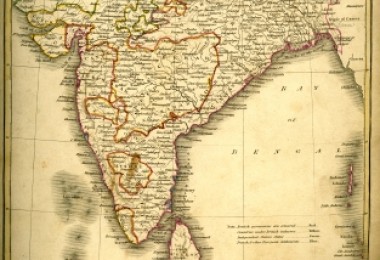Translation Romani has decided to maintain use of the word Romani in all language versions of this website, inclusively and in reference both to the language and people of all the diverse ethnic communities throughout the world, i.e. Roma, Sinti, Manuš, Calé, Romanichal, Kalé, and many others. Please read the important notes from our translators for explanations and other translations currently in use locally, nationally or regionally.
Close this box.
Romani groups have migrated to and settled in over 50 countries around the world since the time of departure from India. Populations are cited anywhere from 10 to 14 million worldwide. Traditionally, most scholars have tended to adhere to a theory of a large, rather monolithic group migrating out of India (between the 5th c. and 10th c.) into Anatolia, then on to the Balkans and Europe, where contact with other languages and cultures caused the original Romani language/culture to fragment. Recent scholarship advocates a newer theory, however, that smaller, multiple groups began migrating out of India successively at different times during the early 11th c. Ghaznavid invasions, and only consolidated into a tangible ethnic identity later during the 11th-12th c. while in Anatolia, before migrating elsewhere. Likewise, while traditional theories have maintained that early Romani groups were comprised of artists and entertainers, recent theories propose a concrete military origin, namely Rajput. Nonetheless, from early on, Romani families and clans seem to have been occupationally defined, with types of work and professions varying according to local economies and opportunities.
Regardless, and as historical linguists continue to debate the details on fundamental questions of origin in Romani Studies, there are some parameters capable of guiding us through early Romani history. First, Romani did initially originate in India, and the language has its origins in Indo-Aryan. If Romani peoples did not leave India speaking one uniform language, they most likely mainly conversed by borrowing lexical and grammatical features from several Indic Prakrit languages in addition to elements of Sanskrit. Second, once out of India and en route, they collectively acquired an important number of vocabulary words from Persian, Kurdish and Armenian, but most substantially from Greek while in Anatolia at the time of the Byzantine Empire. Except for groups migrating out of Anatolia very early on, words of Greek origin constitute the second largest percentage of words of pre-European origin, after Indian, for almost all Romani dialects. Third, from Anatolia, sizeable groups appear to have migrated first into the Balkans (13th c.), then northward and into Europe (14th-15th c.) and finally, in the late 19th c., out of slavery in the former Ottoman-occupied principalities of Moldavia and Wallachia (now modern Romania) to the Americas and Australia. Some Romani groups had already been transported to the Americas in the 16th c., during the colonization period.
References:
Bakker, Peter and Kyuchukov, Hristo (eds), What is the Romani language? (Paris / Hertfordshire: Centre de recherches tsiganes / University of Hertfordshire Press, 2000).
Fact Sheets on Roma, Romani Projekt, Council of Europe. Retrieved 3 Sept 2011 from: http://romafacts.uni-graz.at/index.php/history/early-european-history-first-discrimination/arrival-in-europe
Fact Sheets on Roma, Romani Projekt, Council of Europe. Retrieved 3 Sept 2011 from: http://romafacts.uni-graz.at/index.php/history/second-migration-intensified-discrimination/second-migration
Karanth, Dileep (ed.), Danger! Educated Gypsy. Selected Essays. Ian Hancock (Hertfordshire: University of Hertfordshire Press, 2010).
LeBas, Damian and Acton, Thomas (eds), All Change! Romani Studies through Romani eyes (Hertfordshire: University of Hertfordshire Press, 2010).
Marsh, Adrian and Strand, Elin (eds), Gypsies and the Problem of Identities. Contextual, Constructed and Contested. Transactions Vol. 17 (Istanbul: Swedish Research Institute in Istanbul, 2006).

Sar mai san? (Kalderash)
Sar san tu?|Sar san? (Gurbeti)
O Del andas tumen! (Lovari)
Sar san? (Xoraxane)


